Gazans struggle for loaf of bread as bakeries shut down amid Israeli bombings
By Reza Javadi
Israel's relentless bombardment, coupled with an acute shortage of supplies, has forced the majority of bakeries in the besieged Gaza Strip to shut down, leaving families struggling for a loaf of bread.
The UN Office for the Coordination of Humanitarian Affairs (OCHA) earlier this week said the lack of fuel, water, and wheat flour, along with widespread damage caused by the Israeli airstrikes that continue to rain down on the densely populated territory, have forced the closure of bakeries.
Israel launched the no-holds-barred war on the besieged coastal territory on October 7, blocking water, food, and electricity to Gazans, and plunging the 'open-air prison' into a worst humanitarian crisis.
Wheat flour is no longer available in both northern and southern Gaza, according to the Press TV correspondent in Khan Yunis, who says the people are now resorting to desperate measures.
The UN agencies have also reported the acute shortage of food supplies in the besieged strip.
“During the day, many people desperately looking for food broke into the last three bakeries with remaining stocks of wheat flour and took about 38 metric tons,” OCHA said.
Worse humanitarian situation
The situation is grave across the coastal territory amid the relentless Israeli bombings and siege.
In southern Gaza, access to bread remains a major challenge, according to local sources, with the only operative mill in the region unable to grind wheat due to a lack of electricity and fuel.
“The situation is difficult and dangerous, but we feel compelled to keep going for the sake of the people,” the owner of the Rustom Bakery in southern Gaza was quoted as saying.
Last week, Israeli forces bombed a house adjacent to the Rustom Bakery when a large number of citizens were waiting to buy bread. The blast killed and injured dozens, as confirmed by the Gaza Government Media Office.
“We must document the events and not forget them. We should not become accustomed to these scenes of killing and bombing. We should not accept them. Speaking out and exposing the crimes of the Israeli occupation is the least we can do,” a resident of the area was quoted as saying.
Humans of Gaza: Masoud al-Qutati, Gaza's beloved knafeh-maker, and "father of the poor" falls victim to Israeli brutalities#GazaGenocide#WeAreAllGaza pic.twitter.com/5RhCOncyWI
— Press TV (@PressTV) November 12, 2023
“The bombing of the bakery is part of a plan to target the home front. Bread soaked in blood,” Hassan Adwan, another resident of the neighborhood, said, adding that UNRWA "bears responsibility for the crowded lines in front of the bakeries.”
“Flour should be distributed to families so people can bake their own bread in what remains of their homes. Why do the people of Gaza receive bread soaked in blood, bombardment, oppression, and destruction,” he remarked.
Despite the rising need for food, many bakeries across the territory have had to shut down “because of the danger and shortages of necessary supplies”, Ahmed Rustom (25), whose family owns the bakery, was quoted as saying.
Some customers start queuing during the night, Rustom said, adding that he found people sleeping on the street outside his bakery at 11 pm.
“When I asked why they were there, they said they were booking a place in the line.”
The queues outside the few remaining bakeries stretch for blocks, with people risking their lives to secure a loaf of bread for their families, often ending up with no bread.
The World Food Program (WFP) has also emphasized the plight of tens of thousands relying on small bakeries, where long queues form and the risk of going without food is a harsh reality.
“Tens of thousands of people rely on small bakeries to find a loaf of bread to bring back to their families. People risk their lives and queue for hours, but they often go home empty-handed,” the World Food Program (WFP) spokesperson said.
Israeli forces ‘deliberately’ attack bakeries
On October 25, amid the humanitarian crisis gripping the neighborhoods in central Gaza, the Israeli warplanes targeted the only bakery in the al-Mughazi refugee camp, killing at least ten people and wounding dozens of others.
In response, Gaza Government Media Office said the regime was "deliberately bombing and targeting bakeries" to inflict maximum civilian casualties as people queue up to buy bread.
"An Israeli aircraft bombed a bakery in the Al-Mughazi camp after providing it with flour from the United Nations Relief and Works of Palestinian Refugees (UNRWA)," said Salama Marrouf, the head of the government office in Gaza.
The Israeli missiles demolished the bakery and damaged several homes surrounding the camp, with at least 10 Palestinians killed and others injured, according to Maarouf.
"This new war crime, which appears to be a systematic policy by the occupying Israeli state since the launch of its new war, is further evidence it is lying about hitting military targets in Gaza," the media official stressed.
Maarouf also stressed that he "monitored and documented Israeli targeting at least five bakeries directly or its surroundings in different sites across Gaza, which has left dozens of martyrs and hundreds of wounded since the beginning of the aggression on 7 October."
Lack of fuel, water, and bread in Gaza
Meanwhile, the fuel is running out for vehicles to transport flour to those bakeries that remain, according to the UN Relief and Works Agency (UNRWA).
Philippe Lazzarini, head of UNRWA, the UN agency for Palestinian refugees, last week visited Gaza and admitted that he had never seen people in the territory as hungry or thirsty.
“Everyone was just asking for water and food. Instead of being at school, learning, children were asking for a sip of water and a piece of bread,” he said. “It was heart-wrenching.”
According to the Palestinian Health Ministry in Gaza, the death toll from indiscriminate Israeli bombardments has surpassed 11,000 people, including more than 8,000 children and women.
“To wake up to a new day in Gaza means you’ve been born again. Every day that passes with you still alive, you’re born again,” Mu’taz Nassar, a resident was quoted as saying, describing the precarious environment for Gazans amid the ongoing Israeli aggression.
Ghassan Makkadah, a Palestinian father, commented on the quest to find water and bread, saying, “After a long journey in search of drinking water, I returned empty-handed, and I couldn’t find water for my children in Gaza.”
Bread and water have become the main supply for many people in the shelters, which now house more than 600,000 people – triple their intended capacity.
“Conditions in Gaza are desperate. Food and water are running out, shelters for displaced people are massively overcrowded and, without fuel, there is no electricity. Health services are collapsing,” the WFP spokesperson said.
Conditions are desperate, with collapsing health services and only about two percent of required food required to feed Gaza’s population of 2.3 million delivered since October 7, according to Oxfam.
Starvation is undeniably being used as a weapon of war against civilians in Gaza, reflecting the gravity of the humanitarian crisis.
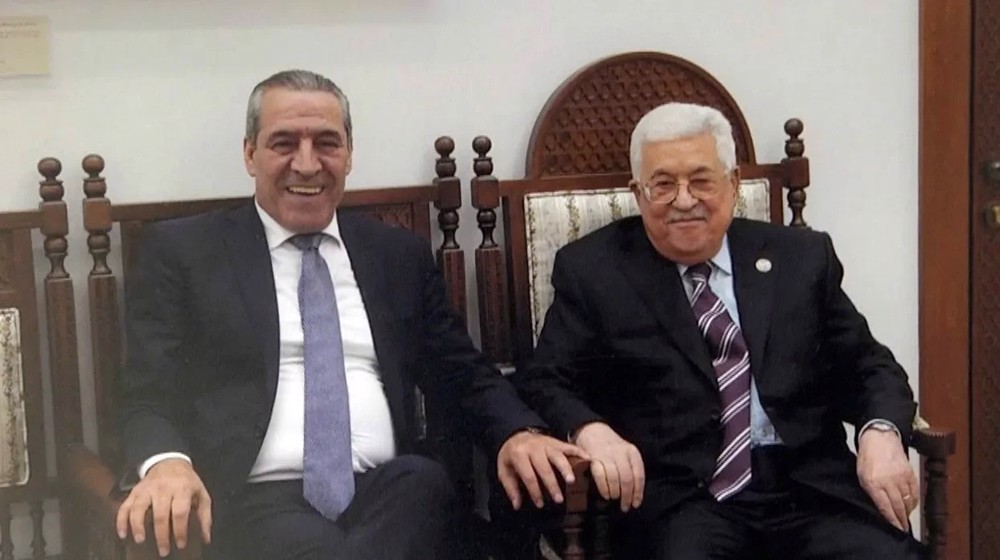
Abbas names likely successor in move deemed ‘illegitimate, divisive’
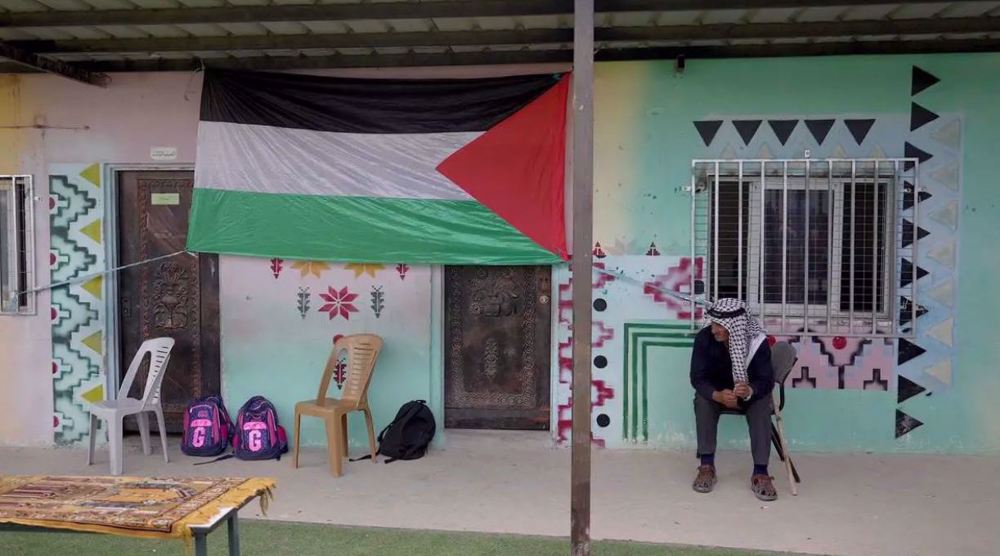
Illegal Israeli settlers attack Palestinian school in occupied West Bank
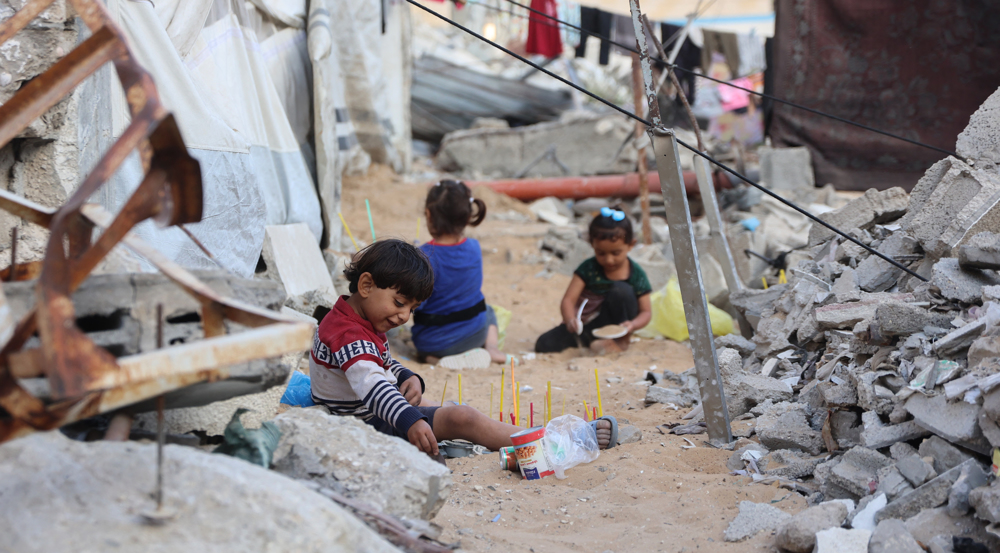
51 civilians killed in Gaza as Israel ramps up attacks amid all-out blockade
VIDEO | Press TV's news headlines
VIDEO | India-Pakistan tensions escalate after deadly Kashmir tourist attack
Iran FM, IAEA chief discuss latest state of cooperation
US airstrike on Yemeni capital kills 8 people
VIDEO | Iran multilayered diplomacy
VIDEO | Press TV's news headlines
Iran more than halved its power grid losses to 10% in 16 years: Expert
Abbas names likely successor in move deemed ‘illegitimate, divisive’


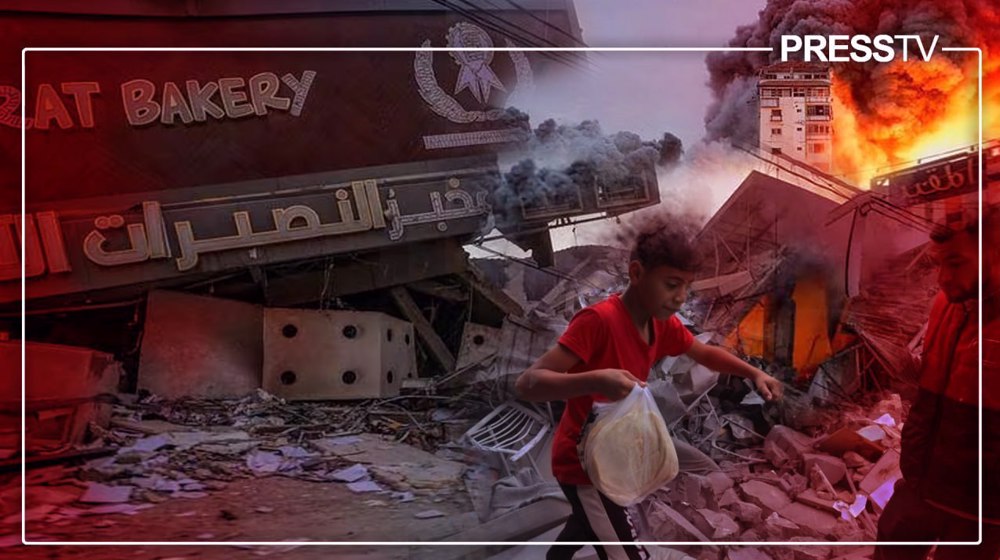
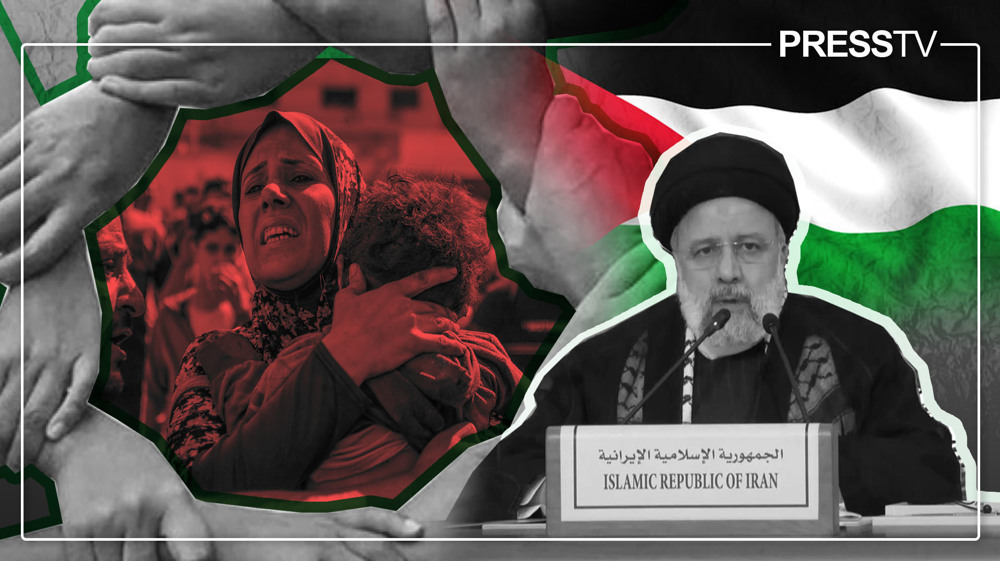
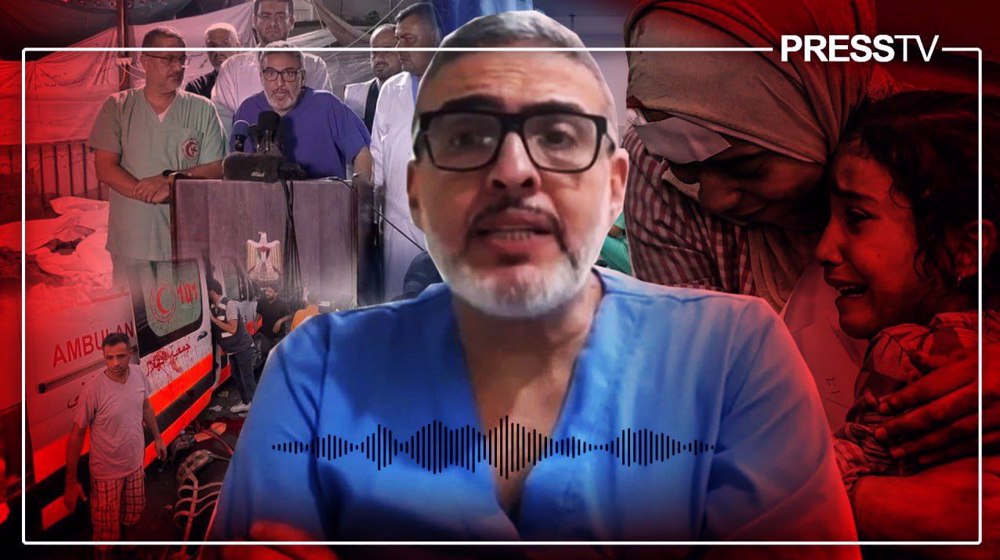



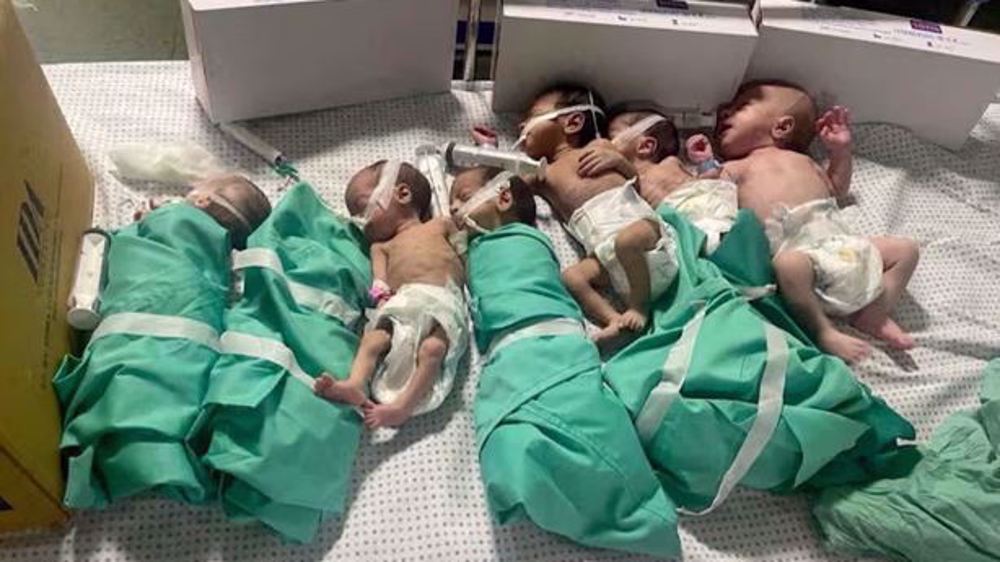
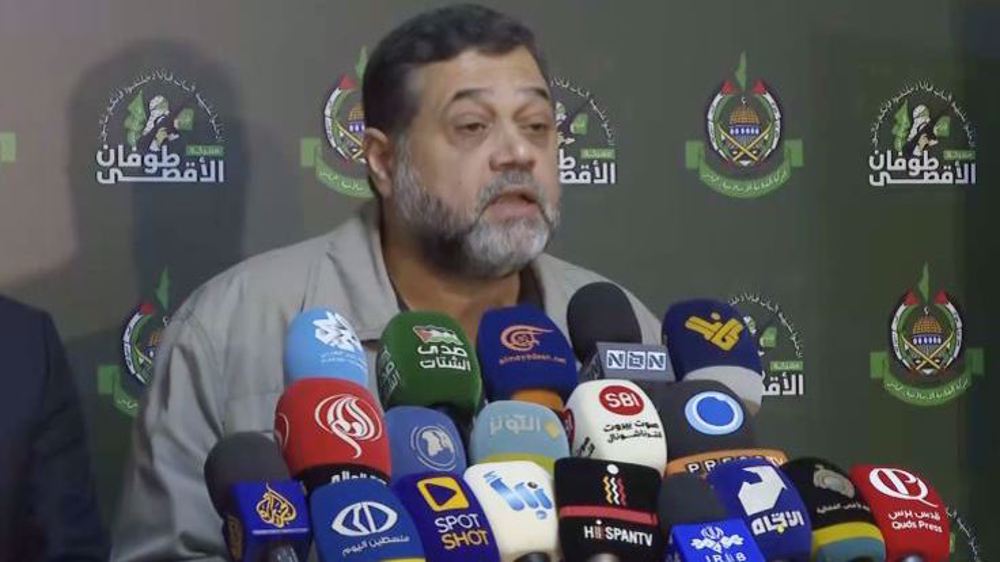
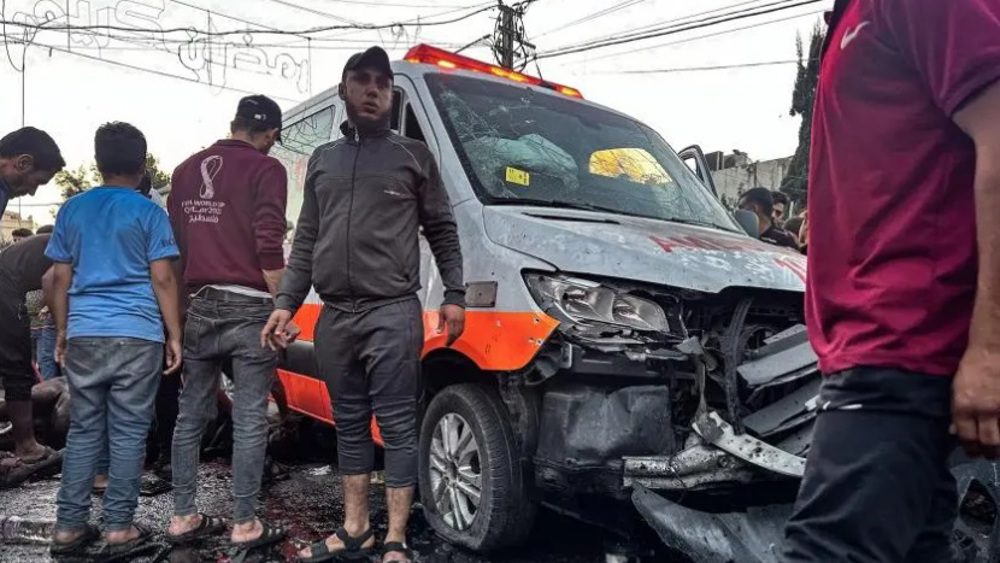
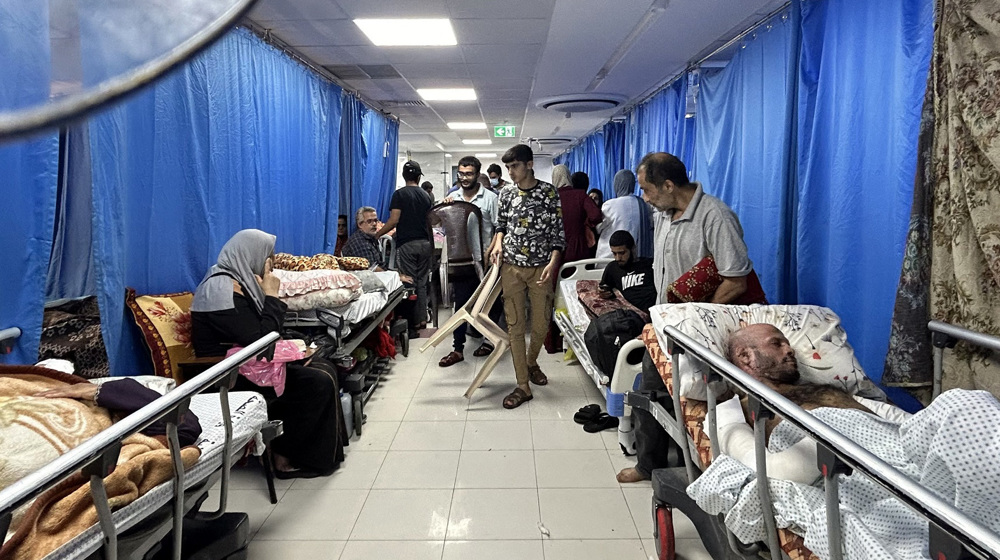
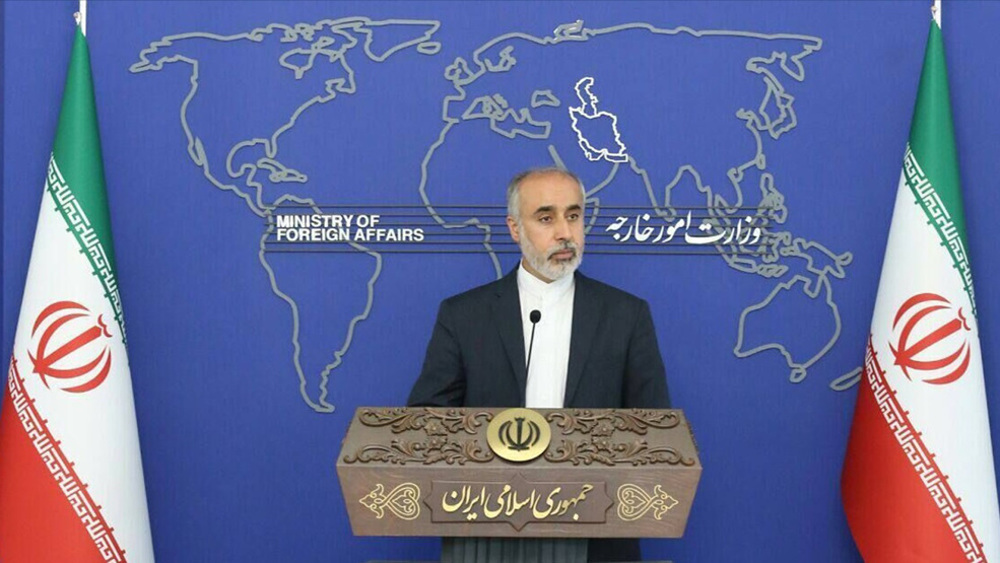

 This makes it easy to access the Press TV website
This makes it easy to access the Press TV website